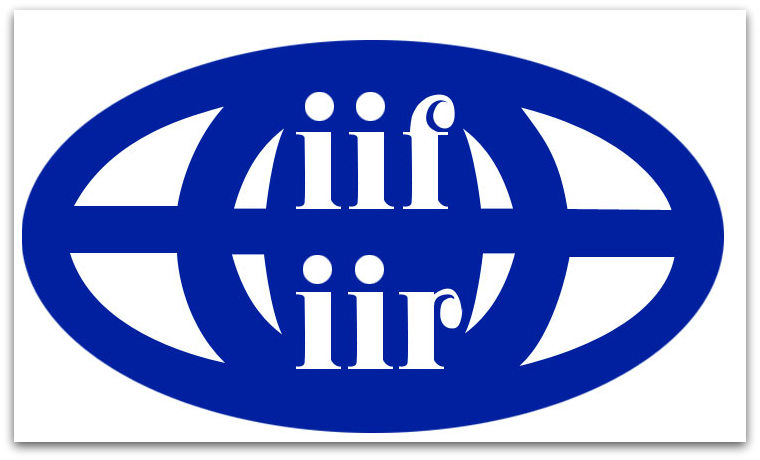Anisotropy of thermal conductivity for cadmium telluride nanostructures
DOI: 10.17586/1606-4313-2025-24-2-110-117
UDC 536.2
Savvateeva Mariya V., Novotelnova Anna V.
Keywords: nanotubes, nanoscrolls, cadmium telluride, thermal conductivity, anisotropy, generalised conductivity method, modelling.
UDC 536.2
Anisotropy of thermal conductivity for cadmium telluride nanostructures
For citation: Savvateeva M.V., Novotelnova A.V. Anisotropy of thermal conductivity for cadmium telluride nanostructures. Journal of International Academy of Refrigeration. 2025. No 2. p. 110-117. DOI: 10.17586/1606-4313-2025-24-2-110-117
Abstract
Composite materials containing CdTe nanotubes are of considerable interest and can be used in electronics and photonics. Data on the anisotropic thermal properties of CdTe nanotube-based composites are necessary for the development of nanoscale electronic devices. In this work, we analytically evaluated the effects of nanotube diameter and temperature on the anisotropy of thermal conductivity. A generalized conductivity theory method has been used to evaluate the effective thermal conductivity of defect-free single-walled CdTe nanoscroll and the effect of temperature on the anisotropy of the thermal conductivity coefficient. The method assumes analyzing heat transfer in a dispersed medium within one elementary representative cell modelling the main features of heat transfer in the medium as a whole. Thermophysical properties of two-dimensional CdTe nanosheets grown by colloidal method, about 1 nm thick, uniformly coiled along the direction forming multilayer scroll-shaped nanotubes have been investigated. The effective thermal conductivity of defect-free single-walled CdTe nanoscroll in the longitudinal and transverse directions relative to the coiling axis was evaluated. As a result, the dependence of the effective thermal conductivity of the composite material on its diameter is revealed and it is shown that the thermal conductivity in the longitudinal direction of the nanotube decreases as the nanoroll diameter increases due to a decrease in the fraction of the highly thermally conductive wall of cadmium telluride CdTe. The thermal conductivity of the nanotube in the transverse direction is lower compared to the thermal conductivity in the longitudinal direction. When the nanotube diameter increases from 5 nm to 30 nm, the longitudinal thermal conductivity decreases from 5.7 to 1.2 W/(m⋅K), while the transverse thermal conductivity varies from 1.5 to 0.6 W/(m⋅K). The influence of diameter and temperature on the anisotropy of the thermal conductivity coefficient of CdTe nanoscroll has been evaluated. It is shown that the anisotropy of the thermal conductivity coefficient decreases with increasing temperature.
Abstract
Composite materials containing CdTe nanotubes are of considerable interest and can be used in electronics and photonics. Data on the anisotropic thermal properties of CdTe nanotube-based composites are necessary for the development of nanoscale electronic devices. In this work, we analytically evaluated the effects of nanotube diameter and temperature on the anisotropy of thermal conductivity. A generalized conductivity theory method has been used to evaluate the effective thermal conductivity of defect-free single-walled CdTe nanoscroll and the effect of temperature on the anisotropy of the thermal conductivity coefficient. The method assumes analyzing heat transfer in a dispersed medium within one elementary representative cell modelling the main features of heat transfer in the medium as a whole. Thermophysical properties of two-dimensional CdTe nanosheets grown by colloidal method, about 1 nm thick, uniformly coiled along the direction forming multilayer scroll-shaped nanotubes have been investigated. The effective thermal conductivity of defect-free single-walled CdTe nanoscroll in the longitudinal and transverse directions relative to the coiling axis was evaluated. As a result, the dependence of the effective thermal conductivity of the composite material on its diameter is revealed and it is shown that the thermal conductivity in the longitudinal direction of the nanotube decreases as the nanoroll diameter increases due to a decrease in the fraction of the highly thermally conductive wall of cadmium telluride CdTe. The thermal conductivity of the nanotube in the transverse direction is lower compared to the thermal conductivity in the longitudinal direction. When the nanotube diameter increases from 5 nm to 30 nm, the longitudinal thermal conductivity decreases from 5.7 to 1.2 W/(m⋅K), while the transverse thermal conductivity varies from 1.5 to 0.6 W/(m⋅K). The influence of diameter and temperature on the anisotropy of the thermal conductivity coefficient of CdTe nanoscroll has been evaluated. It is shown that the anisotropy of the thermal conductivity coefficient decreases with increasing temperature.
Keywords: nanotubes, nanoscrolls, cadmium telluride, thermal conductivity, anisotropy, generalised conductivity method, modelling.












